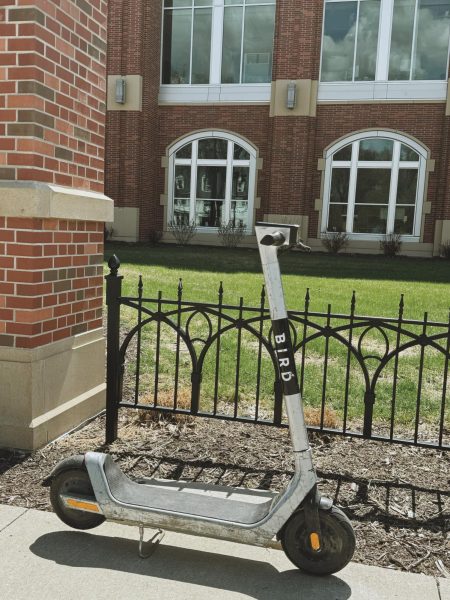“Sully” is memorable but not a classic
November 8, 2016
Perhaps one of the most touted events in recent aviation history, the story of US Airways flight 1549, could have easily become the sensationalized banner headline in Clint Eastwood’s “Sully.” The story, however, was as untold as Eastwood’s posters claimed it to be.
The dedication to give an honest retelling of a highly celebrated day in commercial aviation is especially refreshing in the face of an often profit-motivated media—admirable for everyone involved with the feature film that strove to share the challenges that went into making January 15, 2009 a success, as well as the personal and professional battles everyone involved with that day experienced in the time following.
After Captain Chesley (Sully) Sullenberger’s (Tom Hanks) Airbus A320 struck birds and lost engine thrust over one of the most densely populated boroughs of one of the most densely populated metropolitan cities on Earth, he and his crew were instantaneously faced with the test of their careers.
Most will agree nearly every detail that followed the strike contributed positively to the successful outcome that became quickly tagged the “Miracle on the Hudson” in the hours following.
“Sully” takes the back end of the story, revealing the reality of what the flight’s crew, first responders, passengers, families and Sully went through in the weeks and months after, told through the eyes and ears of the captain.
The accuracy of details and events related to flight 1549, evident in virtually every aspect of this feature film—from the ring Sully wore that day to the verbiage used on the flight deck between Sully and his first officer, Jeff Skiles (Aaron Eckhart), and air traffic control to the specifics about the National Transportation Safety Board (NTSB) investigation—all contribute to being able to tell a story worth listening to.
To think about how hard it must have been for a filmmaker to take just about any part of this story and avoid using its innate drama to base a conflict around with poorly researched details show the dedication of Eastwood and his team put into making this movie right.
Yes, there was the occasional instance of excess mood or slight hyperbole in an indirect sense, but what more could be expected of a feature film. These instances are what hold together a story told in this format.
They’re what pull in audiences, otherwise, it would be called a documentary. In which case not nearly as many people would have been motivated to hear the untold story.
Eastwood plays perfectly with the line between falsity for the purpose of engaging the viewer and keeping it interesting, never something confusingly in between a documentary and feature film.
The slight exaggerations sometimes used by Eastwood or expressed by Hanks never degrade from the ultimate message or try to smudge essential facts about the incident. And for any story, especially one so close to the hearts of all those involved who are still alive today, this could be considered more essential than an A-list cast.
“Sully” is certainly not a classic piece of film or probably even something most will recall and want to re-watch next year. What this movie does is tell the personal story of who most now consider an American hero not only for doing his job exceptionally well on a day in January 2009, but for resembling so commendably the American experience.
Through the investigation into the accident that this film covers, it is also a look into the past life of the captain and how it contributed to his skillful act in New York during one of the toughest times for this generation of Americans.
Declan Hoffman is a staff writer for The Dakota Student. He can be reached at [email protected]












